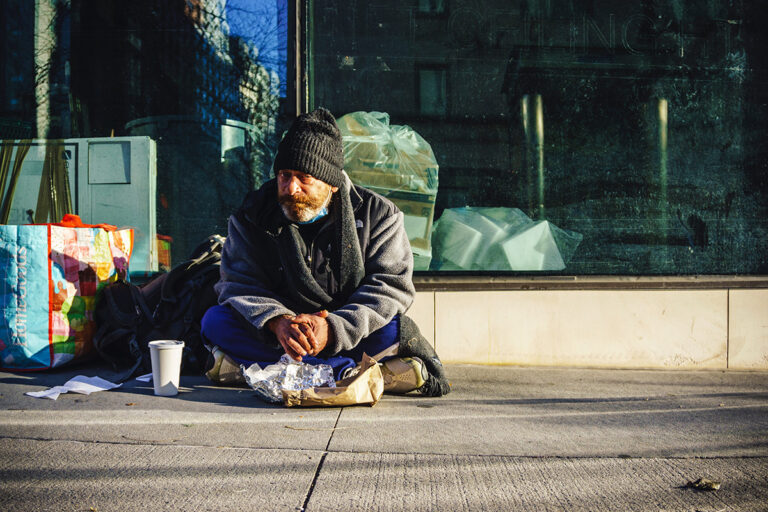Homelessness is a complex issue that affects millions of individuals and families around the world. One significant factor that often contributes to homelessness is addiction. In fact, substance abuse is a prevalent issue among homeless populations, and the challenges faced by these individuals often create a vicious cycle from which it is difficult to escape. In this article, we will delve into the connection between addiction and homelessness, exploring the statistics and factors that contribute to their intersection, and discussing potential solutions to alleviate this ongoing crisis.
Statistics on Addiction and Homelessness
The link between addiction and homelessness is well-documented. According to the Substance Abuse and Mental Health Services Administration (SAMHSA), nearly 38% of homeless people in the United States are dependent on alcohol, and over 26% are addicted to drugs. Furthermore, a 2013 study from the American Journal of Public Health found that alcohol and drug use disorders were present in more than 60% of homeless men and almost 30% of homeless women.
It is crucial to note that these numbers show a strong correlation, but not necessarily causation, between addiction and homelessness. Many factors can contribute to both issues, and it is often a combination of these factors that result in an individual becoming homeless and struggling with addiction.
Factors Contributing to Addiction and Homelessness
Poverty and Lack of Affordable Housing
According to a 2020 report from the National Alliance to End Homelessness, the primary cause of homelessness in the United States is a lack of affordable housing. When individuals and families struggle to afford basic needs such as food and shelter, they are more likely to turn to substances as a coping mechanism. In turn, addiction can exacerbate financial struggles, as individuals may prioritize the procurement of drugs or alcohol over necessities like rent and utilities.
Traumatic Experiences
Exposure to traumatic events can significantly increase an individual’s risk of developing an addiction. A 2014 study published in Substance Abuse and Rehabilitation found that people with post-traumatic stress disorder (PTSD) are two to four times more likely to also have a substance use disorder. Homeless individuals, particularly those who have experienced physical or sexual assault, domestic violence, or military combat, are at a heightened risk of developing both PTSD and addiction.
Mental Health Disorders
Many individuals experiencing homelessness also struggle with mental health disorders. SAMHSA reports that up to 25% of the homeless population in the United States have severe mental illnesses, such as schizophrenia, bipolar disorder, and severe depression. Unfortunately, mental health disorders and addiction frequently occur together – a phenomenon known as ‘dual diagnosis’ or ‘co-occurring disorders.’ In these cases, individuals may use substances as a means of self-medicating their mental health symptoms.
Do you have a loved one struggling with addiction?
We know how hard that can be. Give us a call to find out what options you have.
Breaking the Cycle of Addiction and Homelessness
Addressing the intersection of addiction and homelessness requires a multi-faceted approach that seeks to alleviate both issues simultaneously. Several potential solutions include:
Supportive Housing Programs
Supportive housing programs, such as SAMHSA’s PATH program, combine affordable housing with on-site services like mental health counseling, case management, and substance use treatment. These programs are crucial in helping homeless individuals with addiction establish a foundation of stability and receive the support needed to maintain recovery.
Trauma-Informed Care
To effectively address the traumas that many homeless individuals have experienced, addiction and mental health treatment providers should implement trauma-informed care. This approach acknowledges the impact of trauma on an individual’s life and recovery and strives to create an environment where they feel safe, respected, and empowered.
Integrated Treatment for Co-Occurring Disorders
As the connection between addiction, mental health disorders, and homelessness is strong, it is essential to provide integrated treatment that addresses both addiction and mental health simultaneously. By treating these issues concurrently, individuals are more likely to achieve lasting recovery and decreased risk of future homelessness.
Conclusion
The connection between addiction and homelessness is undeniable, with substance abuse being a significant factor in the lives of many homeless individuals. By addressing the root causes of these interconnected issues – poverty, traumatic experiences, and mental health disorders – we can begin to break the cycle of addiction and homelessness and support these vulnerable populations towards recovery and stable housing.




